
King Charles visits Milton Keynes to mark city status
It was awarded the title in May 2022 as part of the Queen's Platinum Jubilee celebrations.
Camilla, the Queen Consort, was unable to attend after a positive Covid test.
Anti-monarchy protesters who joined the crowds were outnumbered by royal supporters chanting "God save the King".
A reception was held at the Milton Keynes' Church of Christ the Cornerstone, where the King met representatives from local charities and businesses.
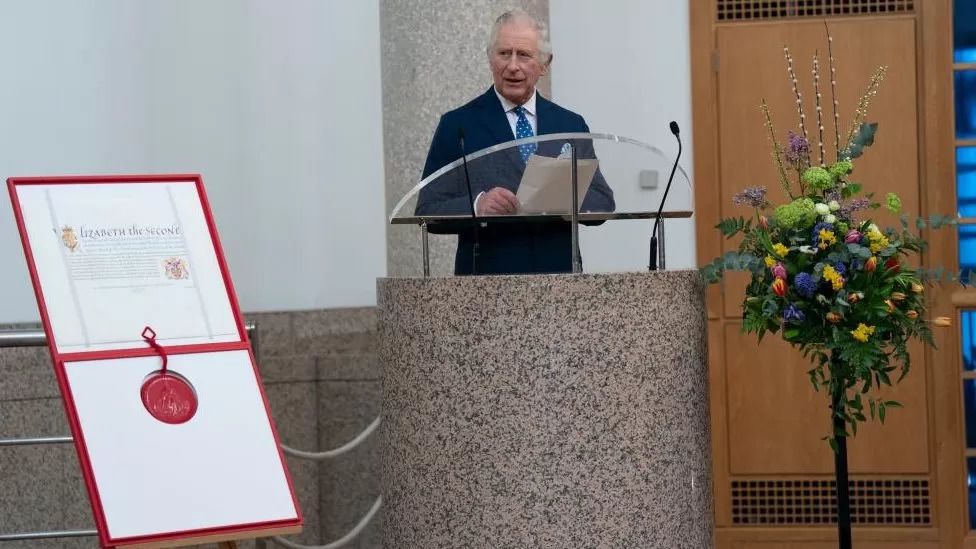 The King gave a speech during the ceremony
The King gave a speech during the ceremony
However, anti-monarchy protesters from the campaign group Republic waved banners reading "Not My King", with one shouting: "Why are you wasting money on a coronation Charles?"
Graham Smith, from Republic - which campaigns for an elected head of state - said the protest was aimed at raising awareness for a larger demonstration his organisation is planning for the coronation in May.
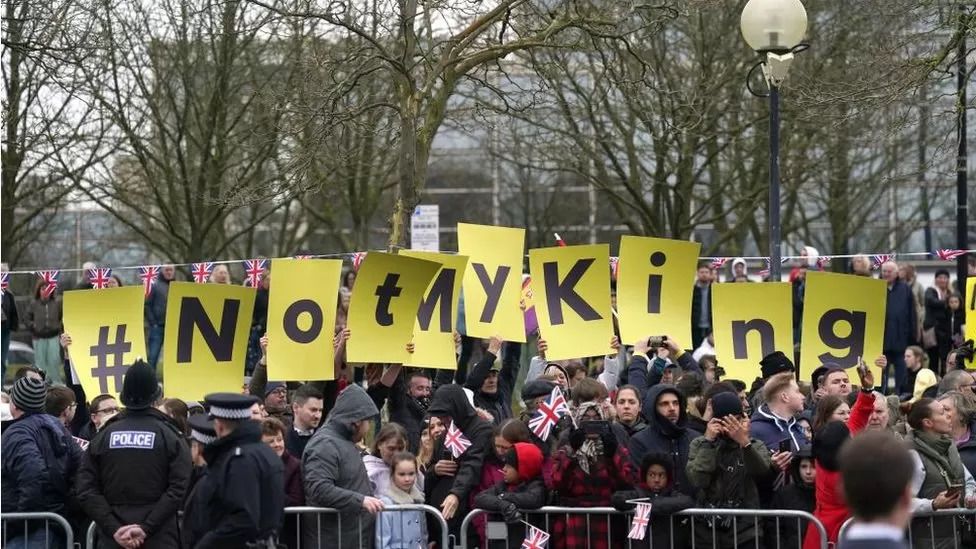 A group of anti-monarchy protesters were in the crowd in Milton Keynes
A group of anti-monarchy protesters were in the crowd in Milton Keynes
During a speech at the church, the King described Milton Keynes as "something special in its own right, that we can celebrate with its inhabitants at this moment in its history".
After the ceremony at the church, the King visited the Milton Keynes (MK) Food Bank to see the support it provides to communities across the city.
One of the themes of the King's first Christmas address was the cost of living crisis, and the broadcast featured footage of a food bank.
Louisa Hobbs, operations manager of MK Food Bank, which supports more than 5,000 families across the city, showed King Charles around and said his interest was clearly "genuine" after he explicitly requested to visit a food bank in Milton Keynes.
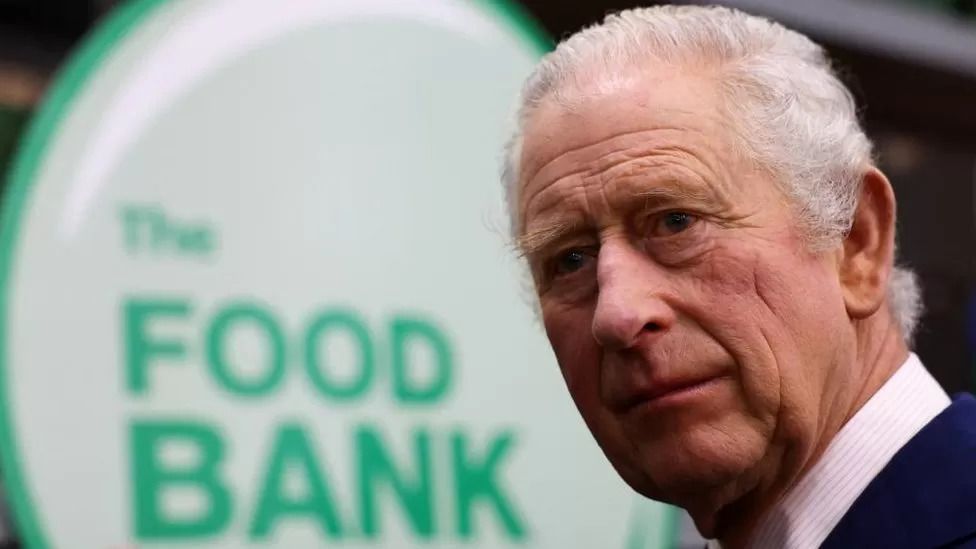 The King also visited a food bank in the new city
The King also visited a food bank in the new city
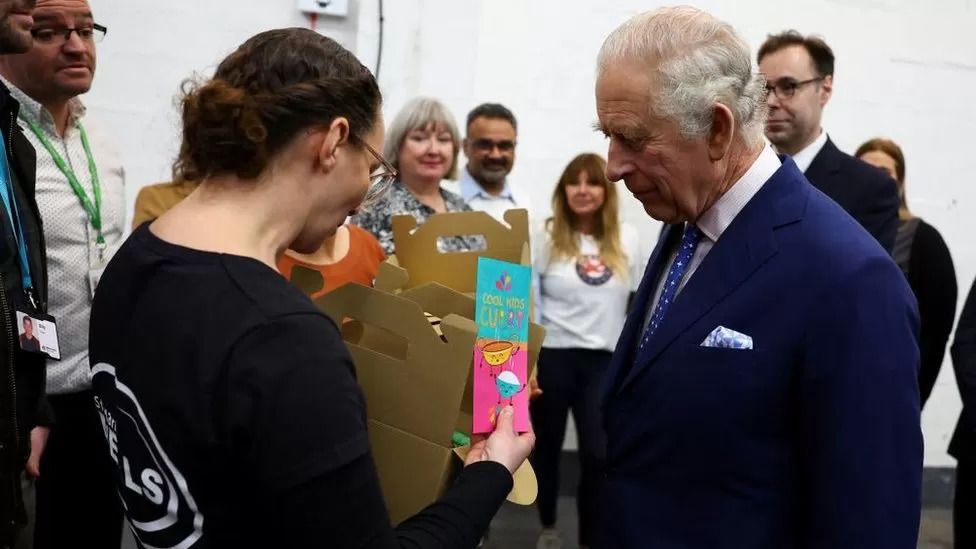 King Charles met volunteers at the food bank
King Charles met volunteers at the food bank
Milton Keynes first applied for city status in 2000, then in 2002 for the Golden Jubilee, and again in 2012 for the Diamond Jubilee.
It was eventually awarded the title in May 2022 during the Platinum Jubilee events.
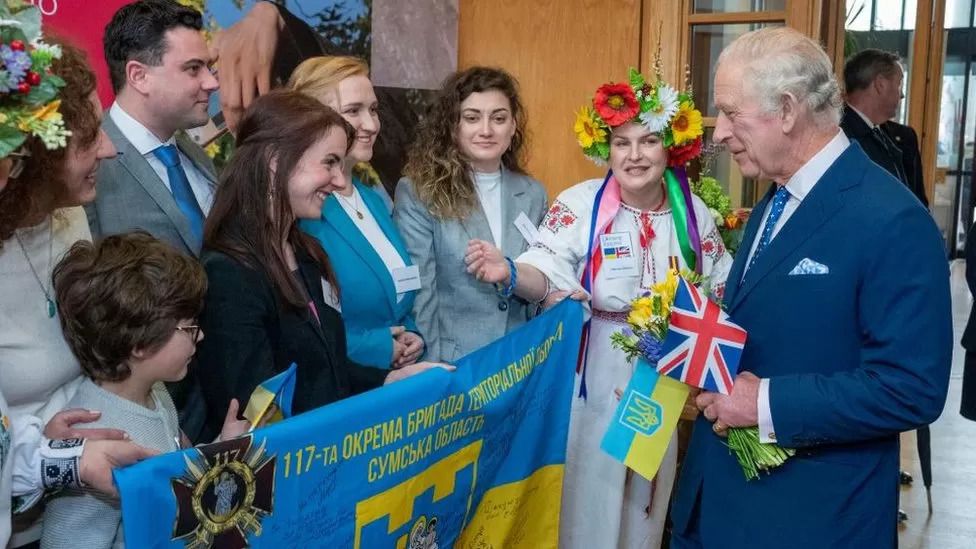 The monarch met a group of Ukrainians at the city's celebratory ceremony
The monarch met a group of Ukrainians at the city's celebratory ceremony
'A grand vision'
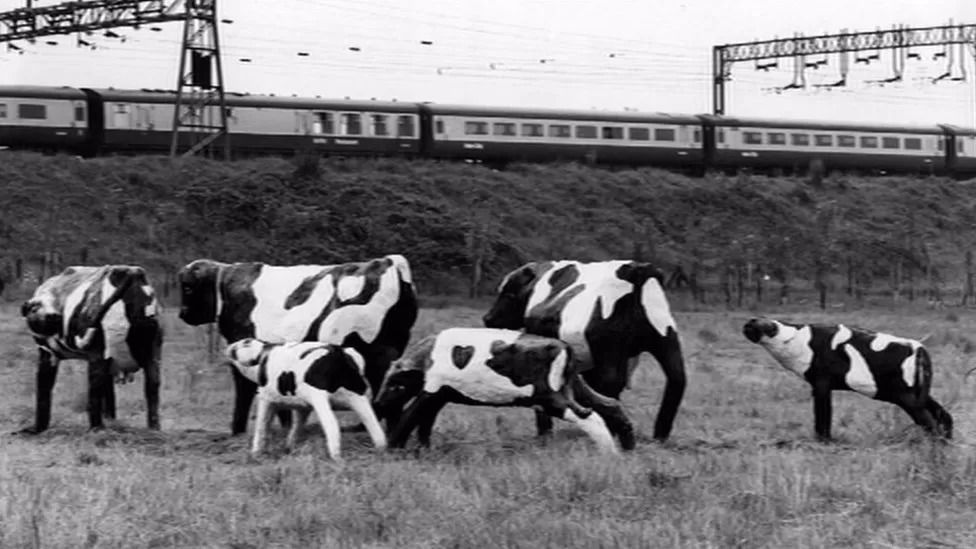 The concrete cows, created by the Canadian artist Liz Leyh in 1978, became a symbol of Milton Keynes
The concrete cows, created by the Canadian artist Liz Leyh in 1978, became a symbol of Milton Keynes
In January 1967, plans for a new town were approved - and soon a quiet Buckinghamshire village became the vast development of Milton Keynes.
The then housing minister Anthony Greenwood granted permission to transform an 8,850-hectare area of villages and farmland into a town for 250,000 people.
It was a grand vision - part of the third and final phase of the government's plans to relocate populations from London and other cities that suffered immense bomb damage during World War Two.
Some five decades on, Milton Keynes has a population of about 280,000 and has become home to more than 10,000 businesses.
It is used as a model for new towns across the world.
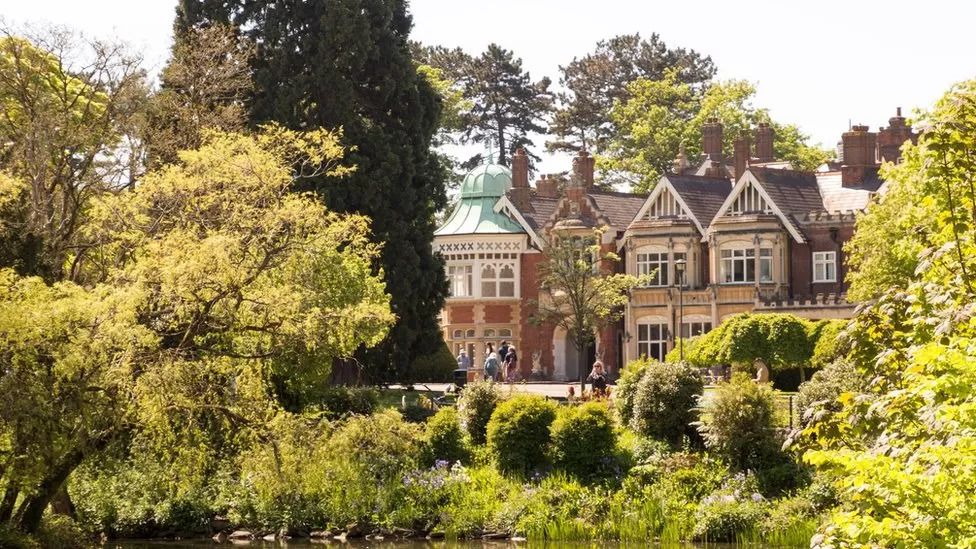 Bletchley Park, the hub of code-breaking in World War Two, is part of the Milton Keynes district
Bletchley Park, the hub of code-breaking in World War Two, is part of the Milton Keynes district
The new city is home to the distance-learning institution, the Open University, which was established by Royal Charter in 1969 and is the largest university in the UK in terms of students enrolled.
The Milton Keynes University Hospital NHS Foundation Trust established the nation's first independent medical school, and Milton Keynes was the first place to introduce kerbside recycling in the UK.
Today, 140 languages are spoken in Milton Keynes' schools including those of every Commonwealth nation, and 30 religions are observed, the council said.










